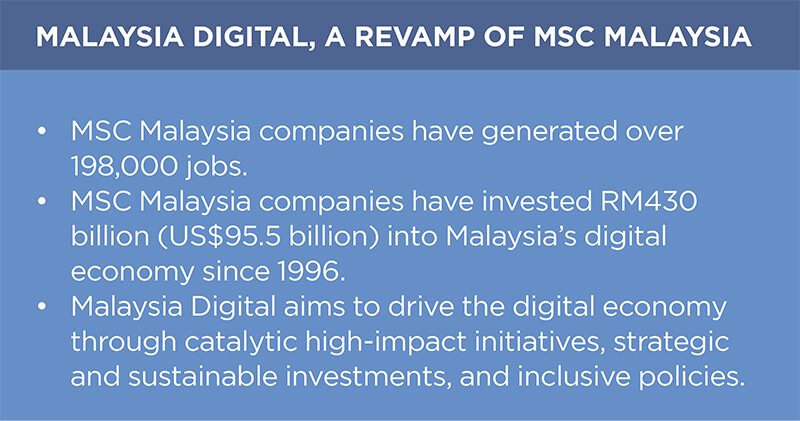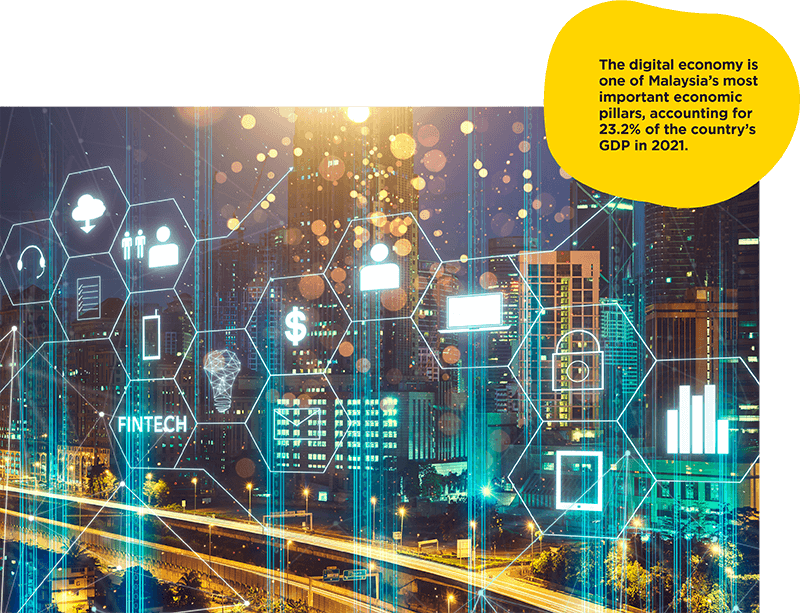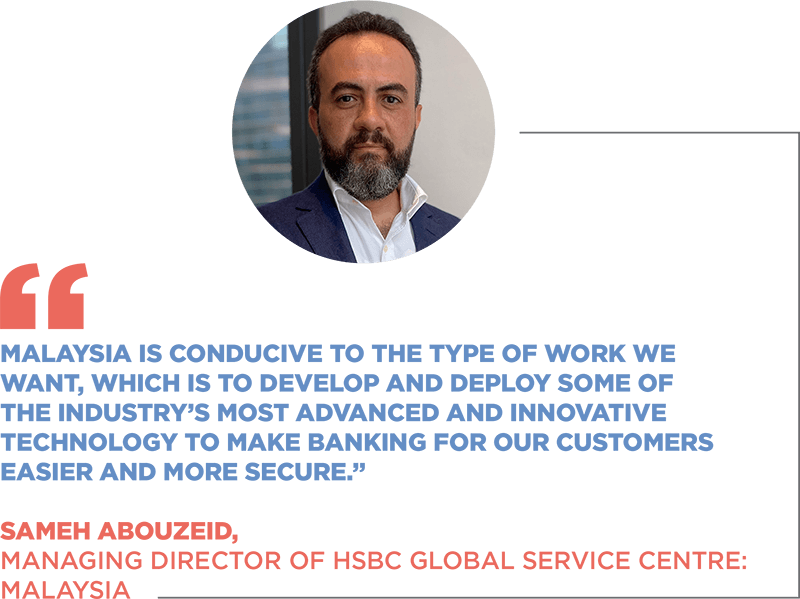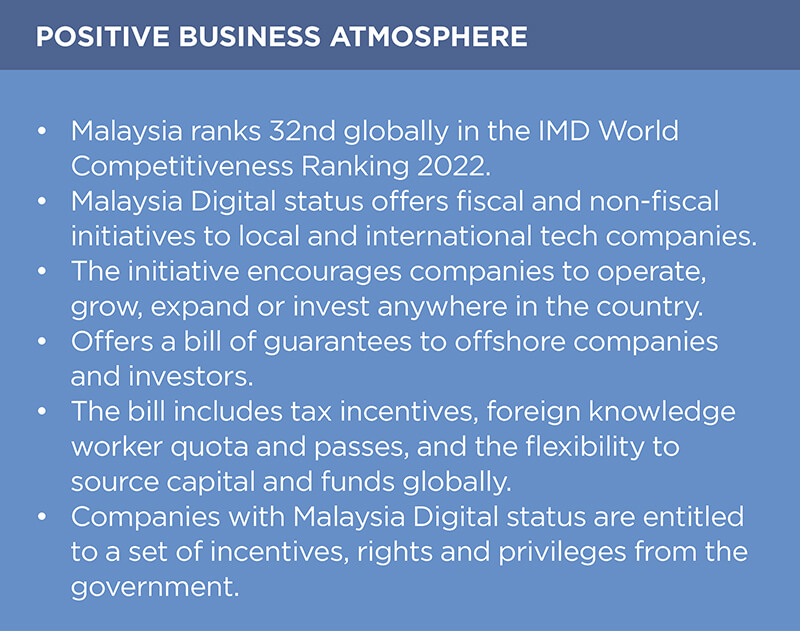Capitalising on Malaysia’s Booming Digital Revolution
Arriving in style: The country is the premier ASEAN location for digital and tech companies looking for expansion

Malaysia is becoming a hub of digital innovation in ASEAN due to its ever-growing digital economy, making it the perfect place for tech organisations looking to get ahead. With an abundance of resources and opportunities available, Malaysia is quickly establishing itself as a powerhouse within the region.
The digital economy is a major contributor to Malaysia's GDP, standing at 23.2% in 2021. The government’s goal of 25.5% by 2025 appears comfortably attainable given this impressive progress – putting Malaysia on track for even greater success in the years ahead.


Mature digital environment
In the wake of COVID-19, Malaysia's dynamic digital infrastructure provided an ideal foundation for global business operations to continue seamlessly from home. With its value-driven cost competitiveness, companies were able to remain robust and also lay a secure groundwork for future digital success amidst one of the most troubling times in modern history.
Malaysia has set an ambitious goal of developing a comprehensive digital infrastructure that serves the nation's population in a meaningful and equitable manner. The nation is committed to encouraging mass adoption of technology to ensure its citizens have access to digital advancement within their means. As this digitalisation initiative continues to move forward, the country looks forward to a bright future that engages the whole nation in modern technology and innovation.
With Malaysia's digital advances, HSBC’s Global Service Centre has embraced the opportunity to create a technologically-driven future. Recently, the bank has unveiled unique initiatives like their two-tier customer verification system with voice identification – a pioneering move that made them both first within Malaysia and Southeast Asia as well.
"We are leveraging this digital ecosystem to launch things here before they are seen elsewhere," said Sameh Abouzeid, managing director at HSBC Global Service Centre. "Malaysia is conducive to the type of work we want, which is to develop and deploy some of the industry's most advanced and innovative technology to make banking for our customers easier and more secure."
According to Abouzeid, a progressive regulatory environment enables HSBC in Malaysia – the home of one of the bank’s 10 global service centres – to develop its support for its retail and corporate clients in the Asia-Pacific region.
Regional approach
MDEC also recognises that a regional approach to digital investment, rather than competition among neighbouring countries, is the key to success.
By working together in collaboration with ASEAN nations, MDEC strives to make Malaysia an even more successful leader in this space.
We don't see competition around us," says Mahadhir Aziz, CEO of MDEC. "Rather, we see collaborators we can work with and complement to add value to other markets."
MDEC has been proactively working with other regional counterparts to create innovative solutions for digital trade and upgrading the existing digital economy framework.


Power of digitally savvy talent pool
Malaysia’s allure as a business location also lies in the variety of skills found in the Malaysian workforce. With talent developing at a staggering rate, the country has emerged as a formidable option compared to other countries. From app developers to graphic designers and from high-level software engineers to marketing strategists, it offers a complete package that would cover any need any business may have.
“With Malaysia being a centre for technical development and technical education in the region, there is a ready pool of talent made up of future-fit individuals,” Abouzeid says, referring to their ability to embrace new ways of thinking and working in the modern workplace.
Meanwhile, Aziz sees a promising future full of potential for Malaysian content creators thanks to the ever-growing metaverse. With its newfound popularity, this virtual platform offers many opportunities for creative minds and investments alike.
This new iteration of the internet allows for new opportunities in the sector and a way for Malaysia’s burgeoning skilled talent pool, which saw 5.36 million youngsters graduate in 2020, to develop their skills and new projects to drive exports.
"We are one of a handful of countries with a very strong skill set in creative digital content," he says. "This allows us to contribute positively to the extended, augmented, and virtual reality sectors."








